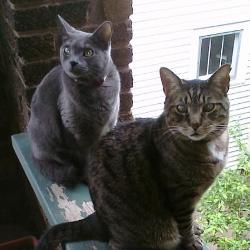From The Chair
The 2010-2011 academic year was one of both joy and sadness for the Department of History at WSU. Less than a year after the loss of Craig Miner, the Willard W. Garvey Distinguished Professor of Business History, in July we lost Niall Shanks, the Curtis D. Gridley Professor of the History and Philosophy of Science, who died after a long illness. Dr. Shanks, who held a joint appointment with the Department of Philosophy, left behind a great many friends and nearly as many scholarly publications. Dr. John Born, who preceded me as the department’s scholar of Colonial and Revolutionary America, retiring in 2005, also recently passed away at his home in Texas.
While “replacing” such scholars and colleagues would be impossible, the department has been very fortunate in being allowed to seek their successors. Last spring we were exceedingly fortunate to hire Dr. Robert Weems, Jr., as the new Garvey Distinguished Professor. In addition to his bona fides in 20th-Century U.S. and Business history, Dr. Weems brings expertise in African American history as well, allowing us to offer courses that we had previously only dreamed of.
We are in the early stages of searching for a new Gridley Distinguished Professor as well, and hope to make that hire this coming spring. Finally, the department has also begun its search for a new Medieval historian in the wake of the recent retirements of Professors Anthony Gythiel and Phil Thomas.
Though mindful of our losses, the History Department is nevertheless optimistic that with new hires come new opportunities, and we feel confident that the faculty who are joining us will be of great help in accomplishing our primary goal: providing the best possible education and expertise to our undergraduate and graduate students.
Robert M. Owens
Chair, Department of History
Welcome to Dr. Robert E. Weems, Jr.
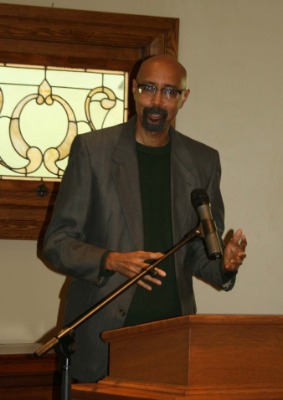
The Department of History is delighted to welcome Dr. Robert E. Weems, Jr. as the new Willard W. Garvey Distinguished Professor of Business History. A native of Chicago, Weems received a B.A. from Western Illinois University; an M.A. from Boston University in Afro-American Studies; a second M.A. in history from the University of Wisconsin-Milwaukee; and a Ph.D. in History from the University of Wisconsin-Madison. From 1999-2011, Weems was Professor of History at the University of Missouri, Columbia.
His areas of specialization include African American History, African American Business History, and U.S. History. He received numerous fellowships and grants, including one from the Andrew Mellon Foundation. Weems is one of only a handful of scholars who specialize in the study of African American business history, including the role of consumerism and entrepreneurship in the African American community.
Weem’s books include Black Business in the Black Metropolis: The Chicago Metropolitan Assurance Company, 1925-1985; Desegregating the Dollar: African American Consumerism in the Twentieth Century; and Business in Black and White: American Presidents and Black Entrepreneurs in the Twentieth Century. His current research project is a biographical study of Anthony Overton, an important African American businessman in early twentieth-century Chicago.
Convinced that scholars of African American history cannot afford to do research just for the sake of doing research, Weems insists that his work have practical applications that address the needs of larger society. He looks forward to explore the ways in which Wichita’s African American heritage reflects these larger themes.
In Memoriam: Niall Shanks

The Department of History mourns the loss of Niall Shanks, the Curtis D. Gridley Distinguished Professor of the History and Philosophy of Science, a joint appointment he held with the departments of History and Philosophy. He died July 13, 2011, after a long illness. Shanks was the first Gridley Distinguished professor at WSU, and taught courses on science and technology for the History Department.
Born in England, Professor Shanks received a B.A. (Hons.) in Philosophy from the University of Leeds in 1979, an M. Phil. in Philosophy from the University of Liverpool in 1981, and a Ph.D. in Philosophy from the University of Alberta in 1987. Shanks authored several books and numerous articles on the history and philosophy of science, including God, the Devil, and Darwin: A Critique of Intelligent Design Theory. Shanks’ most recent book (co-authored with Ray Greek, MD) was Animal Models in the Light of Evolution. He was also in demand as an authoritative public lecturer on topics regarding biological science and history, and was lauded for his wit as well as his expertise.
At the time of his death, Shanks' research interests were focused on evolutionary biology and its implications for medical theory and practice from the standpoint of history of science and of research methodology. Shanks was the Vice-President of the Americans for Medical Advancement and a former president of the Southwest and Rocky Mountain Division of the American Association for the Advancement of Science.
Public History
Sandra Reddish, an alum of the Public History Program, once said, “it’s not what you know or who you know, but who knows you.” The recent activities of public history students bear this out as they find that their internship and other experiences have led to additional opportunities.
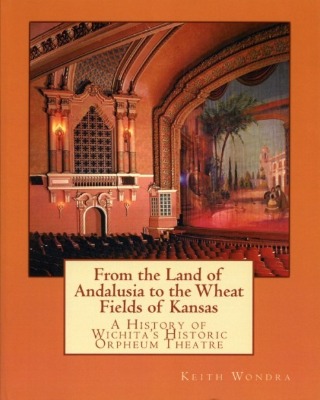
For example, Keith Wondra recently completed a history of the Orpheum Theatre and is now commissioned to write a history of Botanica. Liza Lazareva, who volunteers at the Kansas Cosmosphere, has, in addition to her coursework, taken on the position of director for the Kansas Museum of Military History in Augusta. Sadonia Corns, in addition to receiving a Kansas Association of Historians graduate student paper award, is now working on a National Register of Historic Places nomination form for the Governor John McCuish home in Newton. Douglass Miller is working with the Air Force in Incerlik Turkey. Judith Welfelt, in addition to serving as Fairmount Folio editor, did an internship at the Eisenhower Library and Archives. Jillian Overstake worked with Exploration Place on a traveling photograph exhibit about modern cowboys. Jessica Nellis is currently working with Maple Grove Cemetery to better document this community institution. Nellis, Wondra, and Corns worked with Jay Price and Craig Torbenson on the new book, Kansas: In the Heart of Tornado Alley. This fall, alum Jim Crawley began as director of the Kiowa County Historical Museum.
The program is delighted to welcome on board some new students, including Jordan Poland, who is currently working with WSU Special Collections and volunteers at the Kansas Sports Hall of Fame with alum Laura Hartley. Austin Rhodes, who comes to us with public history experience in Wyoming, is now a student intern at Sedgwick County Records Management. Aaron Drybread has recently taken the position of Archives Director at the American Overseas Schools Historical Society.
Student Awards
Thanks again to the continued generosity and support of the history department’s benefactors; the history faculty was able to award over $10,000 in scholarship and prizes to our graduate and undergraduate students.
In the category of paper awards there was a clean sweep of the undergraduate categories. Lynn Olson received the Douglas Bendell Award in Undergraduate Research and Writing for her paper “George Washington: A Lesson in the Creation of a Reputation.” Olson also was selected to receive the John Rydjord Undergraduate Paper Award for the best undergraduate paper in an upper division history course for her paper “Transformation on the Plains: The History of the North American Bison.” In the graduate paper category, Kathleen Regan-Wyant’s “From Railroads and Rocks: Railway Building in Great Britain and the Development of Geology,” was chosen to receive the Fiske Hall Non-Seminar paper which is given to the best graduate paper in a non-seminar course. Kate Page was honored for her submission to the Fiske Hall Seminar Paper for her essay “Those Pirates and Muslim Barbarians: The American Public View of the Barbary Nations and the United States’ Participation in the Barbary War” which is bestowed on the best paper submission for a seminar course.
The following undergraduate students were singled out for their overall academic achievements by receiving these scholarships. Kevin Kirchgessner was awarded the Lee and Helen Kamen Scholarship in History. Angela Sager’s continued superior performance garnered the Donna and Bill Ard Endowed Scholarship again. Lynn Olson added to her accolades by being selected to receive the Dr. Henry and Minnie Onsgard Scholarship. Paul Leeker gathered in the Marie Graham Scholarship and Mary Travis snagged the Constance Louise Routh Decker-Daughters of the American Revolution Scholarship. Marie Nelson received the Russell “Jiggs” Nelson Endowed Scholarship.
Selecting the graduate award winners remains the most difficult task for the department as we are fortunate to have so many deserving candidates. This year the department faculty tapped David Ferguson to get the Anthony and Dana Gythiel Endowed Scholarship/Fellowship in History award. The department was simply unable to decide between two worthy candidates for the John Rydjord Graduate Award (Fellowship) so the honor is jointly shared by Hugo Marquez and Harvey Munshaw. In these trying economic times, the support of our alumni and benefactors in the form of scholarships is a tremendous boon for our students.
The history faculty is pleased to be able to recognize these students’ outstanding achievements and we are grateful to those who have provided this financial support. Congratulations to all our winners!
Faculty News
2011 turned out to be a year of good fortune for George Dehner. In the spring he was informed that he had been awarded tenure and promoted to Associate Professor. This pleasant news was followed by a surprise announcement that his article “WHO Knows Best? National and International Responses to Pandemic Threats and the ‘Lessons’ of 1976” which appeared in the Journal of the History of Medicine and Allied Sciences had been selected to receive the 2011 Margaret T. Lane/Virginia F. Saunders Memorial Research Award. The award recognizes the best use of government documents in a research article, and is given by the American Library Association Government Documents Roundtable. The close of spring brought a third piece of good news as George’s manuscript Influenza: A Century of Science and Public Health Response with the University of Pittsburgh Press is slated to be available in the spring 2012 catalogue. The manuscript will be the first work in the Press’ new World History of Science series.
Summer brought continued research and a series of conferences. The end of June found George in New Orleans attending the American Library Association’s Annual Conference where he received the award for his article at a reception held in the Louisiana State Supreme Court Building. In July George traveled to Beijing where he presented a paper titled “Desperate Measures: the Public Health Response to a Novel Influenza Strain in Hong Kong, 1997” at the World History Association Annual Meetings, Beijing, China (7-10 July 2011). In mid-August he traveled to Rennes, France to deliver an invited paper titled “Creating the World Influenza Surveillance System: Surveillance with a Purpose” at the After 1918: History and Politics of Influenza in the 20th and 21st Centuries, EHESP, Rennes, France (24-26 August 2011). George would like to acknowledge the support of the university and department donors whose donations enabled him to represent the university at the Beijing and Rennes conferences. Meanwhile, work continues apace on George’s second manuscript tentatively titled Global Flu.
George returned from France to find the fall semester in full swing, and his classes filled with bright-eyed and eager students. Combined with directing students engaged in thesis work, the fall semester promises to be as busy as the spring was before it. Outside of the university George has his hands full with his three sports-minded sons—Brendan, Patrick, and Sean—which keep he and his wife Jodi on the run.
Europeanist John Dreifort received the John R. Barrier Distinguished Teaching Award granted by the Fairmount College of Liberal Arts and Sciences for 2011. He continues to serve as Graduate Coordinator and advisor for the department’s graduate students. He also continues to advise undergraduate majors in International Studies. He still serves as Executive Secretary of the Wichita Committee on Foreign Relations which has been a “town and gown” organization in Wichita since 1956—and no, he has not been its director all of that time! He still struggles to find time to continue work on his book manuscript about the Eisenhower and De Gaulle relationship during World War II, as well as pursuit of his interest in the history of baseball.
Robin Henry has recently completed her book, Criminalizing Sex, Defining Sexuality: Sexual Regulation and Masculinity in the American West, 1850-1927. In addition to teaching courses on constitutional history and women and gender history, she has introduced and continues to teach a graduate course on Gender and Sexuality in U.S. History. Dr. Henry also served on the Committee on the Status of Women for the Organization of American History from 2009-2011.
As Helen Hundley prepares to return to Siberia and Mongolia in 2012, she gave papers to conferences in the United States this year. In July, she delivered a paper, “Mongolian Introduction of Buddhism to the Buriats in the 18th Century” to the Mongolian Society’s 50th Annual Meeting in Bloomington, Indiana. In August, she spoke on “Siberian Buddhism, Revival and Identity in the Post-Soviet Era,” at the Identity and Community after the Cold War Era conference at the University of Kansas, in Lawrence.
Willard Carl Klunder published a book review: John Bankhead Magruder: A Military Reappraisal, by Thomas M. Settles, in the Military History of the West. Dr. Klunder continues to serve on numerous faculty committees (including Planning and Budget) and is an at-large member of the Faculty Senate.
Ariel Schwendner Loftus is currently working on a transcription and translation of a papyrus fragment of a 2nd century set of farm accounts that was recently purchased by the Ablah Library at Wichita State University. She is also writing a book length project on the Periclean Citizenship Law in fourth century BC Athens.
Robert M. Owens enjoyed teaching courses on the American Revolution and Colonial America, as well as the Introduction to Research and Writing, and the first half of the U.S. Survey. Owens completed a book manuscript, tentatively titled 'Pan-Indianism and Panic: How the Fear of Indian confederacies shaped Anglo-America, 1763-1815," and submitted it to the University of North Carolina Press. He also received an Andrew W. Melon research fellowship, funding a delightful week's research (on another project) at the Virginia Historical Society in Richmond. He is currently in his third year as Chair of the History Department.

For Jay M. Price, main activity has been the writing of Kansas: In The Heart of Tornado Alley, a cultural study of the impact of tornadoes on Kansas life and culture. He co-authored this work with colleague Craig Torbenson and students Sadonia Corns, Jessica Nellis, and Keith Wondra. Proceeds from the sale of this book will go to support the Department of History. The summer and early fall have also involved revising the manuscript of Temples for a Modern God and is now working with a publisher. He is also working on an article on the entrepreneurial tradition of Wichita’s Lebanese business families. He continues to serve on the board of the Kansas Humanities Council, the State Historic Sites Board of Review, and the Wichita Sedgwick County Historical Museum. He has recently joined the University Press of Kansas Board as an alternate member. As this is the 150th anniversary of Kansas Statehood, he has also been on a committee to put together a symposium called “Kansas In Question,” to be held December 5 and 6.
Craig L. Torbenson continues serving as the undergraduate advisor for the department. He worked with Dr. Price and several others on Kansas: In the Heart of Tornado Alley to be published this fall. He is also working on an article about a North Dakota businessman and a sports history manuscript. He continues his interest in family history by volunteering at the LDS Family History Library, teaching “Your Family in History” at Wichita State and completing a life story of his parents.
Robert Weems has been working on a current book-length project, a biography of the noteworthy early 20th century African American entrepreneur Anthony Overton. Its working title is “From Slave to Tycoon: The Legend of Anthony Overton.”
He recently submitted an introductory article from this research to Business History Review for publication consideration. The current title of this manuscript is “Anthony Overton and The Half-Century Magazine: A Businessman’s Multi-Faceted Use of a Popular Periodical.”
He will be presenting a condensed version of the material submitted to Business History Review at the October 2011 Annual Meeting of the Association for the Study of African American Life and History. The title of is: “Anthony Overton and The Half-Century Magazine: The Rise of an African American Business Tycoon.”
Also, in October 2011, he has been invited by the Black Metropolis Research Consortium (BMRC), based at the University of Chicago, to speak about the Overton project at a BMRC-sponsored conference. The BMRC provided financial support to this research during the Summer of 2010.
Finally, he has recently completed an invited Epilogue for the forthcoming edited book, The Business of Black Power (to be published by the University of Rochester Press).
Emeriti Faculty...Where are they now?
Don Douglas celebrated his 87th birthday and Lynn, his wife, celebrated her 89th. They still live in the same house that they bought in 1965, they still make all of the WSU women’s basketball games and they still are able to travel. Last spring they spent a week on Maui, our fifth visit to the islands in recent years and they continue with an annual Christmas week with family in Everett, Washington. This year they missed our annual Labor Day week in Big Sky, Montana, with our older daughter, as they had briefly fallen into the clutches of the medical profession. They continue regular contact with friend and colleague Jim Duram, and with a number of former students as well. He remains a member of the Kansas Holocaust Commission, and continues writing family history and keep fit with regular workouts. To borrow a phrase from the Grand Old Opry’s Minnie Pearl, “I’m just so proud to be here!”
Jim Duram is active with the Kansas Aviation Museum, and is especially involved with setting up the museum’s new archive. He is also putting together a history of the museum itself. In addition to keeping up with his three grandchildren, he maintains a busy reading schedule including lots of material in Dutch!
Judith R. Johnson is glad to report that Albuquerque has turned out to be an ideal location for retirement. The city rightly boasts a pleasant, year-round temperature with a very low humidity which encourages an active and healthy life style. Most days she takes the time to walk in a local park, or hike a trail in the foot hills, or ride her bicycle on one of the many paths that weave throughout the city. Each day, she also works on her Viet Nam research project which is about 50 percent completed. Early after her retirement, she completed an essay on the Bob Hope Christmas shows in Viet Nam which was published in December of 2010. These activities have not interfered with her love of travel. In June 2011, she went to Buenos Aires for the third time, visited family here in the United States, and spent a week on the beach in Ocean City, MD with friends from college. Previously, in 2010, she traveled to Spain, Portugal, Morocco, and Gibraltar. Her favorite part of that trip was standing at the top of "The Rock." There she saw Africa in the distance and where the Atlantic Ocean joins the Mediterranean Sea, noting, “I think that view gives a greater meaning to history when you consider all that has taken place in that area of the world. Travel, obviously, still means a lot to me and I feel fortunate I have the opportunity to do so.”
Phillip Drennon Thomas still remembers with great fondness the many students he has had at WSU and the colleagues he has known over the years. Retirement continues to be a time of transition and has led to moving from a home that they have lived in for thirty-four years to one in east Wichita which has more living space on one floor. Imagine the dilemma in casting away books and objects that generate so many memories. This summer he did research at Scotts Bluff National Monument on William Henry Jackson. He made a presentation on Jackson at the Annual Dinner Meeting of the Creede Historical Society in July. He is presently working on a project examining the nature of accidents, disasters, and death in the San Luis Valley from 1880-1930. Much of his spare time is spent trying to train three heelers - blue, red, and merl, fixing some 2 or 4 cycle engine, rebuilding a 1946 "art deco" Chevrolet pickup, cutting firewood, and reading Scandinavian mysteries.
Bill Unrau is taking full advantage of his location in Boulder, a mere “stone’s throw” from the resources at the University of Colorado as well as the Denver Public Library’s Western History Collection. He is currently working on a new book, tentatively titled, “Deadly Dealing: Indians and Alcohol on the Road to Taos and Santa Fe, 1821-1866.” He says he has just two more chapters to go!
Richard Todd has been enjoying retirement and his book on Napoleon’s Medals has received good publicity on the medals.
Remembering John Born
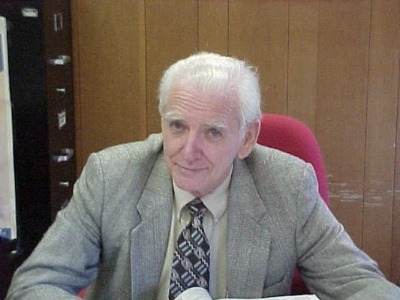
Emeritus faculty John D. Born, Jr. passed away on October 19, 2011, in Waxahachie, Tx., where he lived in retirement. Professor Born came to Wichita State University in 1964, after receiving his Ph.D. At the University of New Mexico teaching in the Department of History until his retirement in 2004. He taught his courses in American colonial and revolutionary history to thousands of students, many of whom became fascinated with the period due to his captivating lectures on the founding fathers. He published his book, The American Spectrum: A Documentary History to 1865 (1968) and regularly presented his research at national conferences, contributed book reviews to professional journals. He served as the department’s Graduate Coordinator for nearly twenty years, advising and encouraging dozens of the graduate students in the M.A. Program. Always the consummate gentleman, he was highly regarded as one our most delightful colleagues, winning the department’s Faculty Merit Award in 1998.
Fairmount Folio
Volume 13 of The Fairmount Folio was a blockbuster! Editor Judy Welfelt oversaw the publication of a substantial 120 page volume. The topics in the six articles ranged from a study of the notorious Dr. John Brinkley to Catholic nuns in the American Civil War.
These volumes would never be possible without the Faculty Board which chooses the papers to publish. This year, Dr. Ariel Loftus and Dr. Robin Henry served on the board.
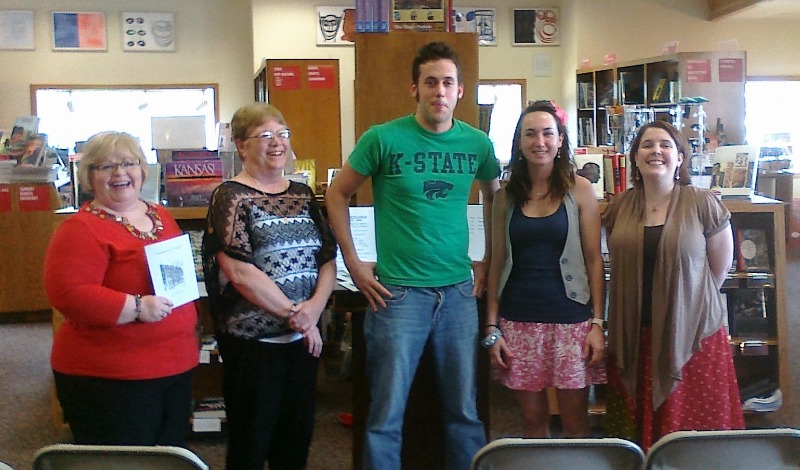
Left to right: Judy Welfelt, student editor; Karen Powers; David Ferguson; Jillian Overstake; and (…. ) at the 2011 Folio signing party at Watermark Books.
Departmental Pets
It turns out that many with the department are animal lovers. Here are just a few of the canine and feline supporters of the Fiske Hall faculty and staff.
Alumni News
Brad Anderson, double major in History and Political Science, 1998, after graduation, spent two years as a quality assurance manager for a couple of local companies. He then went on a journey of graduate education with an MA in Political Science from Kansas, and then - due to a profound vocational shift - an MA in Theology and PhD in Religious Studies from Marquette University. He and his family moved back from Milwaukee this summer to be with relatives during the transitional stage of applications/professional discernment. He is now serving the Classical School of Wichita as Director of Accreditation Planning. His first book, Chosen Nation: Theopolitics, Scripture, and the Project of National Identity, is due out in Spring 2012 from Cascade Books, an imprint of Wipf & Stock Publishers of Eugene, OR. “My time in the History Department at WSU was very positive and formative, especially time spent with Drs. Duram, Hundley, and Dreifort. I am still thankful for that experience and education, and I wish you all well.”
Paul Babich, B.A., 1970:, during 2010 and 2011 served on the four person Historic Commission of the Wichita Catholic Diocese for the beatification and canonization of Rev. Emil Kapaun. He read hundreds of articles about Fr. Kapaun's life and his army career during the Korean War. He wrote four book reviews and a twenty-two page biography of Kapaun that were included in the information sent to the Vatican on July 1. This past year his work on the Kansas Supreme Court Nominating Commission involved nominating candidates to the governor for one vacancy on the Kansas Supreme Court and three vacancies on the Kansas Court of Appeals. He is currently in his second year of his second three-year term as a representative of organized labor on the board of United Way of the Plains. He joined the Wichita branch of the League of Women Voters and volunteered to work on its education committee.
Terry Benton, BA 1973 recently retired from Parker Hannifin Corporation as a Division Human Resources Manager after 31 years of service. He served as a First Class Petty Officer in the Navy from 1966 to 1973 with a tour in Vietnam in 1969. He received an MBA, Suma Cum Laude, from Dallas Baptist University in 1993, and served on the Board of Directors for the Texas Self-Insurance Association from 2006-2008. He resides in Fort Worth, TX.
Sara Ann Brown, BA 2008, graduated from the University of Texas School of Law in 2011. She is currently living in Austin, TX and clerking for the Honorable Harry Lee Hudspeth, United States District Court for the Western District of Texas.
McAndrew Burns, MA 1997, after serving as Executive Director of the Pony Express Museum in St. Joseph, Missouri, and later, the Ethan Allen Homestead & Museum in Burlington, Vermont, has served as the Executive Director of the Clatsop County Historical Society in Astoria, Oregon since 2003. The organization has undertaken an ambitious list of projects under his leadership. They opened the Oregon Film Museum last year to celebrate and interpret the 300+ iconic major motion pictures that have been filmed in the state of Oregon since 1908. Attendance has shattered all projections and a Phase II development is already underway. The historical society was also the lead organization in planning, orchestrating, and implementing an appropriate celebration to mark the Bicentennial of Astoria, the oldest U.S. settlement west of the Rockies. One of the highlights of the celebration was hosting Lord Astor of Hevar, John Jacob Astor VIII, a direct descendent of John Jacob Astor who founded the community.
Cynthia DeCamp , B.A., 1970, is still working as a Nurse Practitioner at a convenient care clinic in metro Atlanta and hopes this job will carry her to the point where she can join the ranks of the retired. She is an officer and board member for the Little Creek Farm Conservancy, where she boards her horse, Lacey. This group maintains one of the last working horse farms in suburban Atlanta. This year she visited Oslo in February, noting that the lectures by Dr. Phillip Thomas on Vikings paid dividends as she visited the various museums. She also saw the World Ski Jumping Championships at the historic, now modernized, and gargantuan Holmenkollen Ski Hill.
Matthew Denner, BA, 2009, has been living in Northwest Arkansas working for Tyson Foods. He most recently got a promotion and started a new job in Marketing. Now that he is working normal hours, he would like to go back to his first plan when he moved down here and that is to start a NWA Shocker Pack down here and get to know some people that have a common ground. GO SHOX!!!
Kathleen Epps Hankins, B.A. 1967, is a chair for the Worship Committee at Hillside Christian Church. She researches family history and retains memberships in Alpha Chi Omega Sorority Alumnae, the Junior League of Wichita Sustainers (inc., Wit & Wisdom), the National Trust for Historic Preservation, the local Historic Preservation Alliance, Inc., Kansas Aviation Museum, & the Sedgwick County Zoo.
Neal Ferguson, BA 1965, MA 1967, received a PhD in history from the University of Oregon, Eugene, 1971. Since 1970 he has been a faculty member at the University of Nevada, Reno. After some time as Dean and Associate Vice President of the College of Extended Studies at the University of Nevada (1980-2004) he returned to the Department of History. Currently, he is Director of Core Humanities. He teaches courses in British History, World War II, and Core Humanities.
Dan C. Fullerton, MA, 1998 went on to complete a PhD. in History from the University of Kansas, becoming an Assistant Professor for the US Army's School of Advanced Military Studies (SAMS) at Fort Leavenworth, KS. For the last four years, he has worked as the Deputy Director of the Advanced Operational Art Studies Fellowship (AOASF), a war-college program for senior field grade officers transitioning them from tactical to strategic level leadership. He teaches courses in Strategic Decision Making, the History of Civil-Military Relations, Twenty-first Century Conflict, Regional Studies, and Strategic Leadership and have coordinated and led multiple fieldwork trips around the US and overseas to UK, Belgium, Germany, China, Australia, and Vietnam.
Steve Gragert, MA, 1976, has served as executive director of the Will Rogers Memorial Museums, Claremore and Oologah, Oklahoma, since 2006. He has edited and published nineteen volumes of the writings and papers of Rogers.
Kerry Jones BA History, 1993, MA History, 2002, BA Political Science, 2003, entered his seventh year of teaching U.S. History courses at Northwest Arkansas Community College (NWACC). Mr. Jones was awarded a gold medallion for teaching five or more years at NWACC by the president of the school. This last year has been a busy one for Mr. Jones, as he wrapped up work on new class he will teach at NWACC called History By Hollywood. This was a course he created from scratch. Mr. Jones took his experiences in Political Science classes at WSU and created a similar class in history. The course, essentially, seeks to debunk myths attached to U.S. History. The course was approved by the department chair, the Curriculum Committee, and the Vice-President of Student Affairs. Mr. Jones also spent the last year working part-time for the National Park Service. Mr. Jones worked at Pea Ridge National Military Park (PERI) as a Park Guide. This job was very rewarding in that he could share with visitors a lifetime spent studying America's Civil War. Mr. Jones organized and then presented a wide variety of programs. Some of his programs included; Good Men All: The Common Soldier of the Civil War, Germans in the Civil War, The Irish in the Civil War, musket presentations, artillery demonstrations, campaign tours, caravan tours, Intrepid Commanders: The Minor Officers of the Battle of Pea Ridge, and Undaunted Courage: The Story of Benjamin McCulloch. Mr. Jones also gave a program for the Honors Program at NWACC. The title of the program was, Native Americans in the Civil War. Mr. Jones is currently working on a book for his college. The title of the book is Intrepid Commanders: The Minor Commanders of the Battle of Pea Ridge, March 7 and 8, 1862. Mr. Jones wishes to say that he enjoyed his time at WSU and especially the history courses he took from John Born. John was his favorite teacher.
Tony Lubbers, B.A. 1993; M.A.1998, is currently serving as Assistant Director of Financial Aid at Friends University. He is married with two kids and three grandkids. He has also kept busy in his spare time as an Adjunct Faculty member at Butler Community College, Baker University, and Friends University. Most of his teaching is done on survey courses (U.S. History 1 and 2, Western Civ 1 and 2), but he has taught some interesting elective courses (History of the American Presidency, The Great Depression and World War Two, and The JFK Assassination-scheduled for Spring 2012--among others).
Robert Meeker retired from District 87 of the Bloomington Public Schools. He had served as Supervisor of Bloomington-Normal Adult Education, and in that role, lead District 87’s implementation of instructional computer technology in the 1970s. He also served as the Director of the Bloomington Area Vocational Center, Assistant Principal at Bloomington High School, and Department Head for both the Business and the Vocational importance of multi-year budget planning as a means for achieving important instructional goals. Rober was the recipient of the Madison County Teacher of the Year award, the Illinois State Board of Education’s “Those Who Excel” award, and, in 2010, was inducted into the Bloomington Public Schools, District 87, Hall of Fame. He lives in Bloomington, Illinois, with his wife, Lynn, and volunteers his services to his son’s painting business. He recently completed a historical review of the Bloomington City Directories.
Robert J. O’Connor , after 48 years of service at the firm of Stinson Morrison Hecker LLP, retired at the end of 2010. He is beginning his new, retired life in Leawood, KS.
Theresa St. Romain, MA, 2004, worked as project coordinator at the University of Kansas School of Medicine-Wichita until 2010. In 2008, she transformed her master's thesis, a biography of silent film actress Margarita Fischer, into a book entitled Margarita Fischer: A Biography of the Silent Film Star. She now works as a freelance editor and writer, publishing historical romance under the name Theresa Romain.
Charlene Day Van Walleghen, BA 1985, also took classes in Public History during 1992-1993. After retirement from USD 259 as an elementary school teacher, she began working at the Great Plains Nature Center in Wichita. She has also taught workshops geared toward preschool and early elementary school teachers through Friends University. Her love for history has combined with a love for quilting. She has enjoyed membership in the American Quilt Study Group and is active in the regional four-state chapter of that organization. She and her husband enjoy exploring local history and travel the state as members of the Kansas Explorers.
In Memoriam
It is with great sadness that the department has learned about the passing of several alumni. Heidie Colucci, M.A. 2004 died in October of 2011. Since graduating, she taught community college in Iowa.
In September of 2011, George M. Wolf passed away. He graduated from Wichita State with a BA in History in 1961 and the University of Colorado Law School in 1964. He began his working career with Hallmark Cards and later owned and operated businesses in Louisburg, Kansas. He practiced law in Johnson County for more than 20 years and ended his career as Director of Mediation and Alternative Dispute Resolution for the Kansas State Dept. of Administration.
Attention alums:
To get your Clio's Correspondence out to you in a more timely manner next year, we are going to send out the letter asking for updates on your various activities during the spring semester. In the meantime, feel free to email jay.price@wichita.edu for your updates. Be sure to check out the “alumni” link on our web page: http://history.wichita.edu






